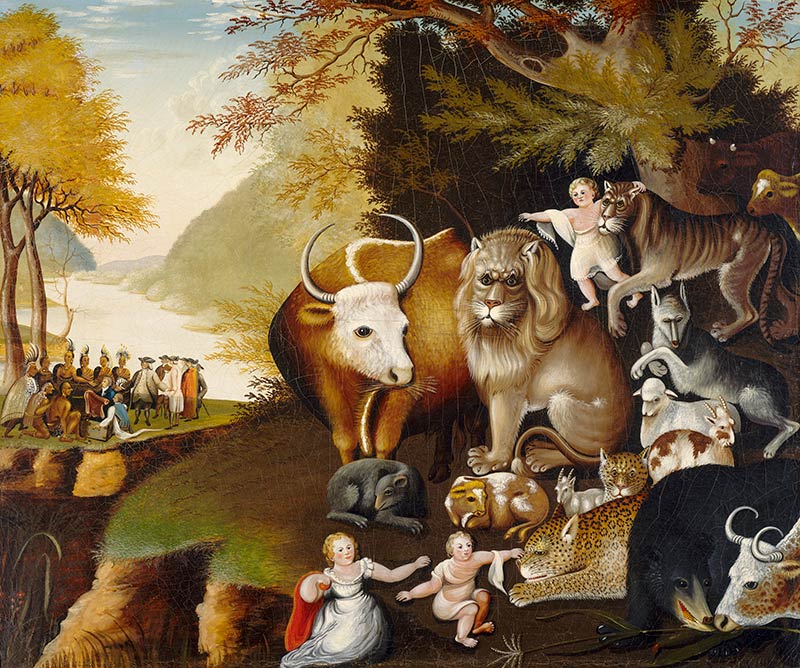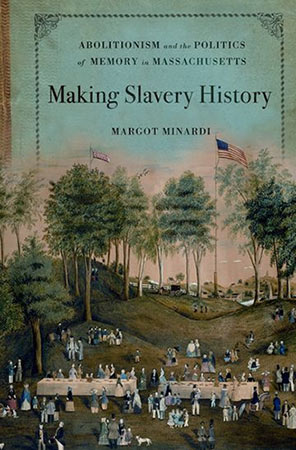Research

Current research: American pacifism in the nineteenth century
My current project, “No Place for Peace,” concerns organized American opposition to war from (approximately) 1815 to 1871. Publications stemming from this work include:
“U.S. Efforts to Promote Peace in the Nineteenth Century,” in The Oxford Handbook of Peace History, ed. Christian Peterson, David Hostetter, Deborah Buffton, and Charles F. Howlett (Oxford University Press, 2023), 248-265.
“Pax Americana? The Imperial Ambivalence of American Peace Reformers,” in The Early Imperial Republic: From the American Revolution to the U.S.-Mexican War, ed. Michael A. Blaakman, Emily Conroy-Krutz, and Noelani Arista (University of Pennsylvania Press, 2023), 248-264.
“The Lessons of Loo Choo: The Historical Vision of American Peace Reformers, 1815-1837,” in The Specter of Peace: Rethinking Violence and Power in the Colonial Atlantic, ed. Michael Goode and John Smolenski (Brill, 2018), 216-251.
“Burritt, Elihu,” in Opposition to War: An Encyclopedia of U.S. Peace and Antiwar Movements, vol. 1, ed. Mitchell K. Hall (Santa Barbara, California: ABC-CLIO, 2018), 92-95.
“Worcester, Noah,” in Opposition to War: An Encyclopedia of U.S. Peace and Antiwar Movements, vol. 2, ed. Mitchell K. Hall (Santa Barbara, California: ABC-CLIO, 2018), 743-745.
“American Peace Society,” in America in the World, 1776 to the Present: A Supplement to the Dictionary of American History, ed. Edward J. Blum et al. (Scribner, 2016), 46-47.
“‘Centripetal Attraction’ in a Centrifugal World: The Pacifist Vision of Elihu Burritt,” special issue on “Forming Nations, Reforming Empires,” Early American Studies 11.1 (2013): 176-191.
“Against Custom: The First Peace Advocates Imagined a New Story for the United States,” Oregon Humanities (Summer 2012): 21-24.

Now available in paperback from Oxford University Press:
Making Slavery History: Abolitionism and the Politics of Memory in Massachusetts
James H. Broussard Best First Book Prize Winner, Society for Historians of the Early American Republic (SHEAR), 2011
Making Slavery History focuses on how commemorative practices and historical arguments about the American Revolution set the course for antislavery politics in the nineteenth century. The particular setting is a time and place in which people were hyperconscious of their roles as historical actors and narrators: Massachusetts in the period between the Revolution and the Civil War. This book argues that local abolitionists, both black and white, drew on their state's Revolutionary heritage to mobilize public opposition to Southern slavery. When it came to securing the citizenship of free people of color within the Commonwealth, though, black and white abolitionists diverged in terms of how they idealized black historical agency.
Although it is often claimed that slavery in New England is a history long concealed, Making Slavery History finds it hidden in plain sight. From memories of Phillis Wheatley and Crispus Attucks to representations of black men at the Battle of Bunker Hill, evidence of the local history of slavery cropped up repeatedly in early national Massachusetts. In fixing attention on these seemingly marginal presences, this book contends that slavery was unavoidably entangled in the commemorative culture of the early republic—even in a place that touted itself as the "cradle of liberty."
Transcending the particular contexts of Massachusetts and the early American republic, this book is centrally concerned with the relationship between two ways of making history, through social and political transformation on the one hand and through commemoration, narration, and representation on the other. Making Slavery History examines the relationships between memory and social change, between histories of slavery and dreams of freedom, and between the stories we tell ourselves about who we have been and the possibilities we perceive for who we might become.
Find out more about Making Slavery History:
Oxford University Press
On Monuments & MLK (OUP Blog)
The Page 99 Test
Amazon.com
Other publications:
“The American Revolution in Memory,” in The Cambridge History of the American Revolution, ed. Marjoleine Kars, Michael McDonnell, and Andrew M. Schocket (Cambridge University Press, forthcoming).
“Antislavery Movement,” Oxford Bibliographies Online in African American Studies, ed. Gene Jarrett (Oxford University Press, 2023). [access requires subscription]
“Major Problems in American Democracy,” Common-place: The Interactive Journal of Early American Life 15:4.5 (November 2015).
“Making Slavery Visible (Again): The Nineteenth-Century Roots of a Revisionist Recovery in New England,” in Politics of Memory: Making Slavery Visible in the Public Space, ed. Ana Lucia Araujo (Routledge, 2012).
“Beyond Crispus Attucks,” review of Death or Liberty: African Americans and the American Revolution, by Douglas R. Egerton, Common-place: The Interactive Journal of Early American Life 11.1 (October 2010).
Entries on Primus Hall and Chloe Spear, African American National Biography, ed. Henry Louis Gates, Jr. and Evelyn Brooks Higginbotham (Oxford University Press, 2008).
“Freedom in the Archives: The Pension Case of Primus Hall,” Dublin Seminar for New England Folklife Annual Proceedings 2003: Slavery/Antislavery in New England, ed. Peter Benes (Boston University, 2005).
“The Boston Inoculation Controversy of 1721-22: An Incident in the History of Race,” William and Mary Quarterly, 3rd ser., 61 (2004): 47-76. Winner of the Richard L. Morton Prize.
“The Poet and the Petitioner: Two Black Women in Harvard’s Early History,” in Yards and Gates: Gender at Harvard and Radcliffe, ed. Laurel Thatcher Ulrich (Palgrave, 2004), 53-67.
Additional book reviews in American Historical Review, Canadian Journal of History, Civil War Book Review, Ethnohistory, H-Early America, H-Nationalism, History: Reviews of New Books, Journal of American History, Journal of the Civil War Era, Journal of the Early Republic, Journal of Southern History, Labor: Studies in Working-Class History, Massachusetts Historical Review, New England Quarterly.